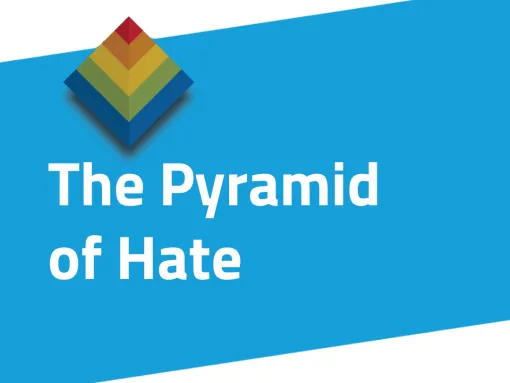
Mini-Lesson For Students
About the Mini-Lesson
This mini-lesson will introduce you to the Pyramid of Hate, an ADL concept and activity that demonstrates how the seeds of bias, once planted, can grow quickly from biased ideas to discrimination and acts of violence.
ADL's mini-lessons for students are short, interactive, online lessons for you to learn about a core ADL topic, theme or activity.
Objectives
This self-paced mini-lesson will enable you to:
Explore…



























